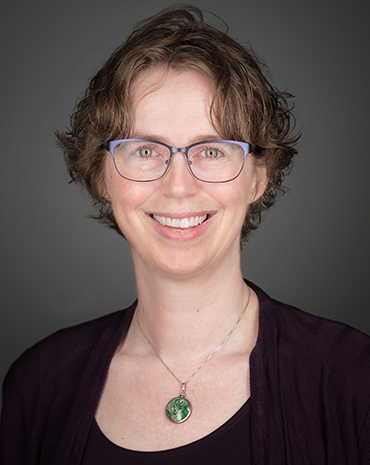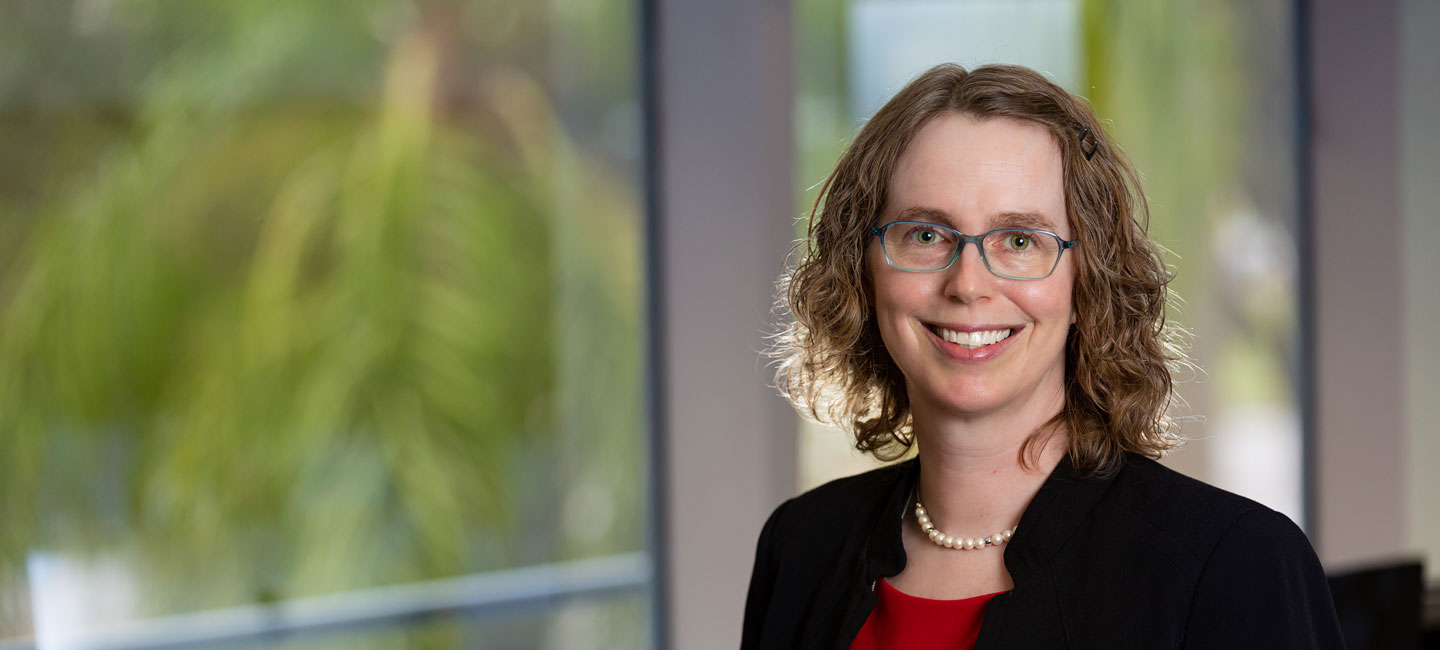Cancer Epidemiologist Shares Her Research Journey
Shelley Tworoger, PhD, has served as associate center director of Population Science at Moffitt Cancer Center since 2017. She also is a senior member in the Department of Cancer Epidemiology. A self-described problem-solver, Tworoger discusses her journey into the world of research, which began while growing up in Washington state.
When did you know you would go into research as a career?
I was very lucky to grow up in a place that had a big research community, and in high school I participated in a program where I spent 20 hours a week at a research job. I spent half a day at high school my senior year and half a day in the research job, and I just loved it. Much of the research involved how to deal with nuclear waste, and the research group I worked with was doing a mathematical modeling at the molecular level to understand interactions at the atomic level.
I really like to solve problems, and I realized that was definitely my calling. Now it took me a while to get to the discipline that I’m in today. I thought I was going to be a basic scientist, and then I worked in a biochemistry lab, and I realized it wasn’t for me. Then in college I met a friend’s dad who was a biostatistician and he introduced me to the field of epidemiology. I realized it combines statistics, which I really enjoy, and the human aspect, the population science aspect, of trying to help large groups of people. I realized you could make impactful change very quickly with research, and that’s what snagged me.
Did you ever consider another field?
No, not seriously. I did consider possibly getting an MD, but I really liked research and didn’t want to be distracted from that.
Describe your research interests and how this work ultimately might benefit cancer patients.
For my own personal research, I hope we can both help identify women at higher risk of ovarian cancer who could benefit from targeted prevention approaches and also to help women who have developed ovarian cancer to have alternative strategies beyond chemotherapy, surgery or immunotherapy by thinking a little bit more broadly about what women can do for themselves to address their cancer … things like taking aspirin, physical activity and stopping smoking … focusing on those things that can empower women to improve their outcomes.

Also, in my leadership role as associate center director, I hope that I can facilitate the work of other people by giving them the support they need to do their research to impact patient lives for the better. That’s why I like this part of my job. I can have a bigger impact by helping the people in my division to be able to do their research, which is going to impact others in so many different ways.
Do you feel it is beneficial for women in research and medicine to have male allies?
When we’re thinking about inclusion, having those different perspectives is always going to give you new ideas or a new sense of direction or support. I think it’s important that all faculty and all of us in our [various] jobs have those who can mentor and support us in our career development. Sometimes in my life that has been men, and other times, that has been women. From each I’ve learned something new and different. I think it’s important to have that mentorship and support, and it can come from a variety of different places.
In your experience, when women are making decisions, what are the factors women are more likely to consider than men?
I think that in science and medicine in particular, many women, not all, myself included, to some degree may have experienced some type of discrimination or harassment. I do think that sometimes those experiences may bring a different color to trying to make a decision that could influence people and trying to make sure that it’s fair for all people. That’s one way where potentially many women may have had a different experience that may lead them to think about decision-making differently. I also think that it’s not just gender that’s important, but it’s really that we’ve come from different experiences and whether that means different educational backgrounds or whether that means that we’re coming from different countries, racial/ethnic backgrounds, gender or sexual identity. We all have those experiences that we bring to the table that can help us make a more informed decision overall.
What is the best career advice you received?
The best career advice I’ve ever received is to choose the job where you are going to have a fantastic mentor or sponsor. That’s more important than working with the most famous scientist or having the highest-level job. What’s really important is working with people who you can learn from. I got that piece of advice when I was in graduate school, and it has served me throughout my whole career and has framed a lot of my career decisions.
What advice would you give a new faculty member?
Find who you click with and be willing to expand your network. I always encourage junior faculty and postdocs to work with more than one collaborator so that they get a variety of experiences.
What do you do to unwind or to recharge?
This is going to sound nerdy, but I like to do crossword puzzles. Also, my husband and I do music together. I play the piano and sing, and he plays all the other instruments. And we enjoy cooking and going for walks and bike riding.


